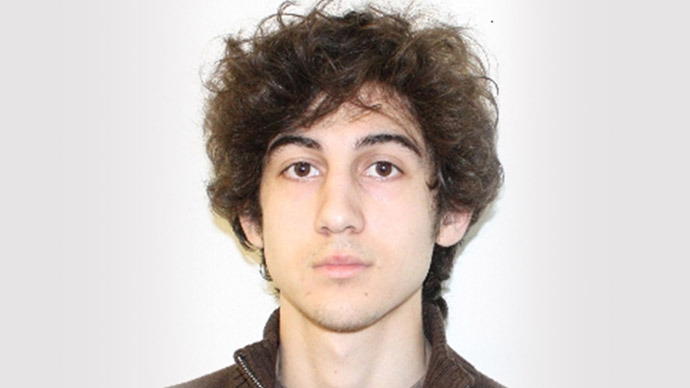(Bombing suspect Dzhokhar Tsarnaev is now in police custody in Boston.)
Race is a social construction. There is only one race, the human race.
But race has historically been something negotiated by the courts, something that has legal standing, and something that has impacted people’s lives across the color line. As Cheryl Harris and Ian Haney Lopez have written, to be “white” is to have a type of property in America. Because “whiteness” is property, it can be inherited, passed down from one person to another as an inheritance, and has value — both symbolic and monetary — under the law, and in the broader society.
European immigrants understood (and continue to understand) the value of whiteness. They knew to distance themselves from black folks as a way of becoming fully “white” and a “real American.” The United States government helped to create race and reinforce the value of whiteness when it passed immigration laws that privileged “desirable races” from Europe over those “less desirable” from Africa, Asia, and other parts of the world.
Race is a type of magic and pseudo-science. This makes it no less real or important.
And, of course, the racist implementation of the G.I. Bill and FHA Housing Programs after World War II helped to create whiteness again by creating a segregated place called “suburbia,” and creating a stark divide in the racial wealth and income gap that is still with us today.
Race works through a type of “common sense” that is based on individual experiences, cultural norms, (misunderstandings of) history, the law, politics, as well as psychological motivations and decision-making that operate on both a conscious and subconscious level. In total, the race business is a type of magic and pseudo-science. This makes it no less real or important.
Whiteness is synonymous with “American” for those who have socialized into what sociologists such as Joe Feagin have termed “the white racial frame.” Here, common sense dictates that “those people” look “American” and those “other people” do not.
The U.S. Supreme Court summed up this logic in the Thind case (1932) in which a South Asian man, a former U.S. Army soldier, was denied citizenship because he was not judged to be “white” by the “common sense” standards of the average white person.
Recent experiments in social psychology have demonstrated how test takers identified an image of former British Prime Minister Tony Blair, who is white, as being “American,” and an image of Barack Obama, the President of the United States, and a black man, as being a “foreigner.”
For the white racial frame, whiteness and “white” people are understood be “normal”; those “other people” are “raced” and are somehow “different.” Because citizenship is about the creation of an “imagined community” some groups and types of people are considered “outsiders.” The color line has racialized this process in the United States: to be white is to be considered de facto part of the country’s political community.
History is inconvenient on these matters.
The first great waves of immigrants to the United States were from Africa and not Europe. First Nations peoples were already present in what would later become the United States, when the first white settlers arrived from Europe. The Southwest was already populated when it was claimed under Manifest Destiny after the Mexican American war.
While some will try to suggest the two bombing suspects are not really “white” because they are Muslim, Chechens are considered white under the law in the United States.
Yet European immigrants, the majority of whom came long after those first arrivals can somehow claim to be more “American?” For race, whiteness, and white supremacy to cohere with one another necessarily involves those great leaps of faith.
The two suspects in the Boston Bombing are white Chechens. While many in the mass public–white conservatives and racial reactionaries especially–will try to suggest they are not really “white” because they are Muslim, Chechens are considered white under the law in the United States, and through the pseudo-scientific “common sense” norms of race. Tamerlan Tsarnaev and Dzhokhar Tsarnaev are also proof that racial profiling does not work as an effective law enforcement measure.
I was not alone in my long-held belief that the next “terrorist” attack on the United States would be conducted by white Europeans. I was also not alone in suggesting that it would be a group of white Chechen women such as the suicide bombers known as “The Black Widows” who would conduct a spectacular attack on the United States or her allies. Why not?
If the state and the public have telegraphed their hand by obsessing over “dark-skinned” Arabs that are a caricature out of a bad 1980s action movie, and the media and conservatives are willfully blind to white domestic terrorists in the U.S., the preferred tactical choice is a clear one.
As the legendary comedian Paul Mooney has observed: “Whiteness is the complexion for the protection” of the U.S. Whiteness will keep white folks safe. Whiteness, as it has long been for people of color, is also a source of terror and fear. However, whiteness and white-skin privilege are not benign. The Boston Marathon Bombing, and the subsequent manhunt and violence, demonstrates this long-standing history reality once again.
On CNN, a man was interviewed about the Boston Marathon Bombing and manhunt. He told the reporter about one of the suspects that, “I thought he was white, you know, a regular American.”
Tamerlan Tsarnaev and Dzhokhar Tsarnaev are “regular” Americans.
Tamerlan Tsarnaev and Dzhokar Tsarnaev are also white.
And Tamerlan Tsarnaev and Dzhokar Tsarnaev decided to kill other “regular Americans” who also happened to be white.
Chauncey DeVega is an essayist, cultural critic, and host of “The Chauncey DeVega Show” podcast.




0 Comments